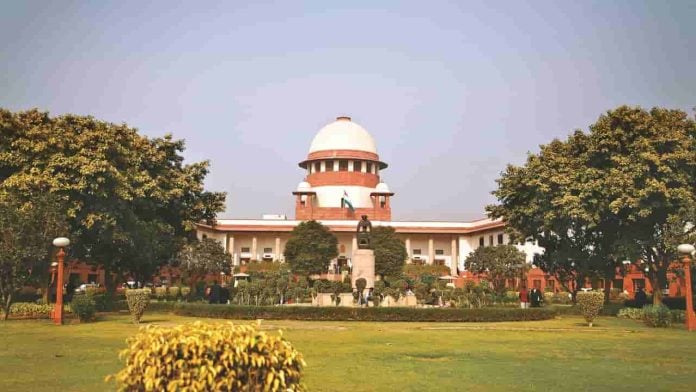The Supreme Court on Monday directed the Union of India to file a counter-affidavit on a bunch of petitions challenging the constitutional validity of the Places of Worship (Special Provisions) Act 1991, which prohibited conversion of a religious structure from its nature as it stood on the date of independence.
The Bench of Chief Justice D.Y. Chandrachud and Justice P.S. Narasimha again gave extension to the Union government, after Solicitor General Tushar Mehta requested for the same. It said the matter would be listed on a non-miscellaneous day.
On September 9, the Apex Court had directed the Centre to file its response within two weeks, which was extended to October 31 and later to December 12.
Representing the All India Muslim Personal Law Board (AIMPLB), Senior Advocate Kapil Sibal pointed out that the five-Judge Bench of the Apex Court had upheld the Act during the Ayodhya verdict and hence, the PILs were not maintainable.
“My lords, I have two points. This is in the nature of a public interest litigation and I can understand if there is a dispute concerning structure. This is an act, legislation in terms of which your lordships in Ram janmabhoomi case had made certain observations.
“My preliminary objection is this that such petitions cannot lie unless it relates to a particular structure. There cannot be a public interest litigation qua judgement of a court taking a certain view.
“How do you review the judgement of the court? Before you go into the matter, certain issues have to be dealt with.”
Appearing for BJP leader Ashwini Upadhyay, who filed one of the petitions, Senior Advocate Rakesh Dwivedi said that the challenge was against the legislation and not against any observations in the verdict.
The Bench recorded in its order that Sibal sought to raise certain objections pertaining to the maintainability of the petitions and added that such preliminary objections would be considered at the stage of hearing.
Representing the Jamiat Ulama-i-Hind, Senior Advocate Vrinda Grover said that in terms of earlier order, the Union government had placed its position, which was not yet on record.
The lawyer said she didn’t know what the Union of India said vis-a-vis this Central legislation, adding that while these petitions were pending, there were disputes such as the Gyanvapi Mosque and the Idgah Mosque, which were in direct breach of this statute.
As per the Advocate, the Union government had not placed anything before this court. At the same time, litigation of all manner had taken place, while the petitions sought alteration of religious character.
The Supreme Court agreed to hear the matter on the next date.
(Case Title: Ashwini Kumar Upadhyay vs UoI And Ors)


